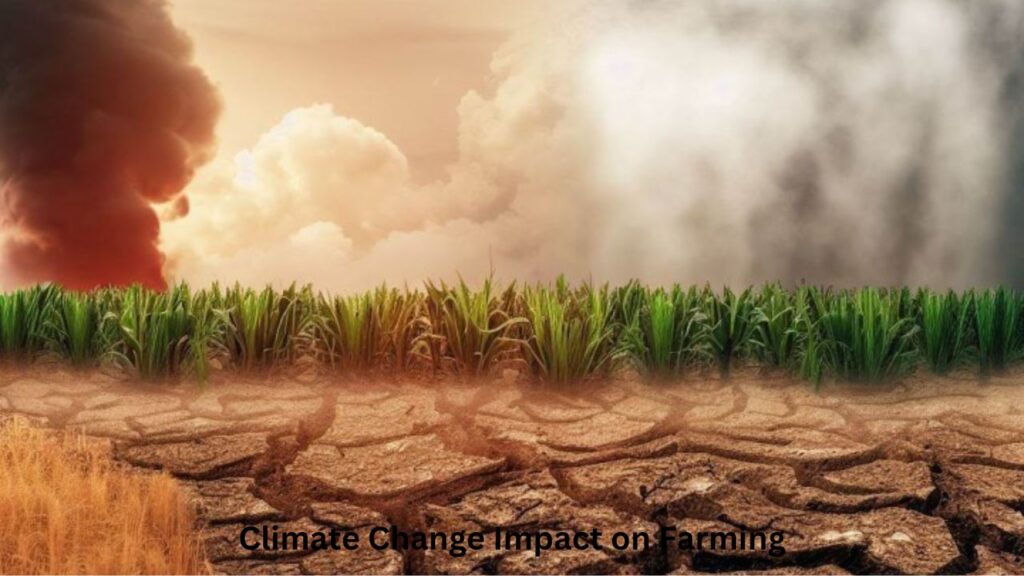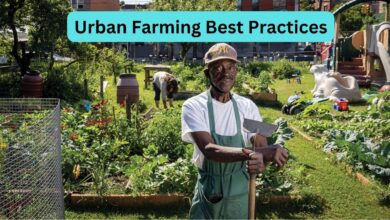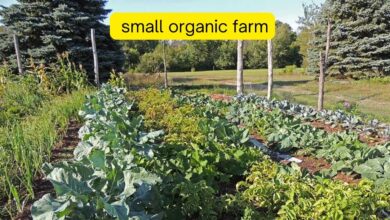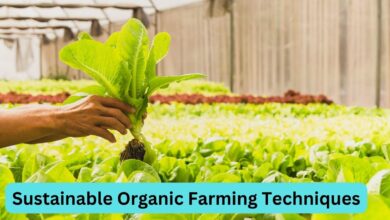Climate Change Impact on Farming: What to Know 2024
Climate Change Impact on Farming The global climate crisis is getting worse, and it’s hitting farming and agriculture in India hard. This article will look into how climate change is changing farming. We’ll cover the main causes, effects, challenges farmers face, and ways to make farming sustainable in the future.

Rising temperatures and changing weather patterns are making life tough for farmers in India. They’re facing more extreme weather events too. It’s important to understand how climate change affects farming. This knowledge is key for those making policies, farmers, and everyone else.
Understanding Climate Change Impact on Farming
The global climate crisis is a big worry now. It’s clear that human actions are making the planet warmer. These actions release gases that trap heat, making the Earth’s temperature go up.
Causes and Effects of Climate Change
Using fossil fuels for energy, transportation, and industry is a big cause of climate change. So are deforestation and farming methods that release a lot of carbon dioxide. These actions upset the Earth’s climate balance, causing big problems.
Also Read : Boost Your Livestock Farm Profits: Livestock farming profitability tips 2024
The effects of Climate Change Impact on Farming are huge and serious. They include rising temperatures and shifting weather patterns. Glaciers are melting, oceans are getting more acidic, and extreme weather events happen more often. These changes hurt ecosystems, biodiversity, and human health, making life hard for people all over the world.
Rising Temperatures and Shifting Weather Patterns
One clear sign of climate change is the steady rise in global temperatures. This happens because of more greenhouse gases in the air, which keep heat in and mess with the Earth’s climate. As temperatures go up, weather gets more unpredictable, leading to more droughts in some places and floods and storms in others.
These shifting weather patterns cause big problems, like hurting farming, making water scarce, and weakening ecosystems and communities. It’s important to understand how human actions cause climate change and its effects. This knowledge helps us find ways to fix the problem and adapt to the changes.
The Toll on Agricultural Production
Climate Change Impact on Farming is hitting agriculture hard, and the effects are growing more worrying. Farmers worldwide face big challenges that threaten their work and the food security of many areas.
Climate change is making crop yields go down. Warmer temperatures and unpredictable rains cause big drops in crops like wheat, corn, and rice. This makes food insecurity worse, especially in poor countries, as there’s less affordable and healthy food.
Climate Change Impact on Farming also hurts agriculture in other ways. Extreme weather like floods, heatwaves, and storms damages farms, animals, and buildings. This makes farming even harder.
| Region | Projected Crop Yield Reduction by 2050 |
|---|---|
| Sub-Saharan Africa | Up to 22% |
| South Asia | Up to 16% |
| Latin America | Up to 12% |
The table shows how crop yields could drop by 2050 in different areas because of climate change. These numbers show we need better farming methods to deal with this big issue.
Climate change impact on farming
Crop Yield Reductions and Food Insecurity
Climate Change Impact on Farming is hitting farming hard, especially in India. Rising temperatures and changing rainfall patterns are causing big problems for farmers. This threatens the food security and livelihoods of millions.
One big issue is the drop in crop yields. Studies show that warmer temperatures and unpredictable weather are hurting the yields of key crops like rice, wheat, and corn. These are the foods that feed India’s people. This leads to food insecurity and the risk of hunger, especially for the most vulnerable.
Also Read : Permaculture Farming Methods for Beginners: Start Now 2024
Smallholder farmers in areas that rely a lot on farming are facing huge challenges. They struggle with unpredictable rainfall, long droughts, and more extreme weather. This makes it hard for them to keep up with crop production. It makes the food security crisis worse.
To deal with climate change in farming, India needs a complex plan. This includes developing resilient agricultural practices, investing in better irrigation, and using effective adaptation strategies. By acting now, India can help ensure a secure and sustainable food future for its people.
Drought, Floods, and Extreme Weather Events
The global climate crisis is making droughts, floods, and extreme weather more common. This is a big problem for farmers in India. These changes are ruining traditional farming ways, leading to crop failures and hurting the livelihoods of many farmers.
Adapting Farming Practices for Resilience
Farmers in India need to change how they farm to deal with these weather issues. They must make their farms more resilient and sustainable. This means using sustainable farming practices, like:
- Diversifying crops to include ones that can handle drought or floods
- Using climate-smart agricultural technologies to better manage water and soil
- Adding trees to farms to improve soil health and protect against extreme weather
- Using precision farming to use resources wisely and cut down on harmful gases
By trying these new ways, farmers can lessen the damage from drought, floods, and other extreme weather. This helps protect their crops and their way of life against the climate crisis.
| Adaptation Strategies | Benefits |
|---|---|
| Crop Diversification | Reduces vulnerability to single-crop failures and improves overall resilience |
| Climate-Smart Agriculture | Enhances water and soil management, increasing productivity and sustainability |
| Agroforestry | Improves soil fertility, provides natural barriers, and sequesters carbon |
| Precision Farming | Optimizes resource use and reduces greenhouse gas emissions |
Sustainable Agriculture: A Potential Solution
The global climate crisis is making us realize the need for sustainable farming. Sustainable agriculture includes organic farming, agroecology, and climate-resilient farming. These methods are key to fighting climate change.
Sustainable farming means working with nature, not against it. It’s about making soil healthy, supporting many kinds of life, and using fewer chemicals. This way, farmers can fight climate change and make their farms stronger.
- Organic farming uses no synthetic chemicals. It helps soil hold more carbon, lowering farming’s carbon footprint.
- Agroecology uses techniques like planting different crops together and rotating them. This makes farms stronger against bad weather like droughts and floods.
- Climate-resilient farming uses crops that can handle droughts and saves water. This helps farmers keep producing food even as the climate changes.
| Sustainable Agriculture Approach | Key Benefits |
|---|---|
| Organic Farming | Improved soil health, reduced greenhouse gas emissions, enhanced biodiversity |
| Agroecology | Increased resilience to extreme weather events, improved ecosystem services |
| Climate-Resilient Farming | Adaptation to changing climate conditions, maintenance of crop yields |
By choosing sustainable farming, farmers can lessen climate change’s effects and make our food systems healthier. As we tackle the climate crisis, using these sustainable methods is a hopeful way forward.
Mitigating Greenhouse Gas Emissions
The world is facing big challenges due to climate change. Agriculture is a big part of the problem, releasing a lot of greenhouse gases. Now, it’s key to cut down on agriculture’s carbon footprint to fight climate change.
Reducing Agriculture’s Carbon Footprint
Farmers and experts have found ways to lessen greenhouse gas emissions from farms. These emission reduction strategies aim to use resources better, use renewable energy, and farm in a sustainable way.
- Optimizing Fertilizer Use: Using fertilizers wisely, with the help of precision farming, can cut down on nitrous oxide emissions.
- Promoting Soil Carbon Sequestration: Sustainable farming methods that improve soil health and store more carbon can balance out greenhouse gas emissions.
- Transitioning to Renewable Energy: Investing in farm-based renewable energy like solar or wind power can lessen the need for fossil fuels and lower emissions.
| Emission Reduction Strategy | Potential Impact on Greenhouse Gas Emissions |
|---|---|
| Precision Fertilizer Application | Reduction of 20-30% in nitrous oxide emissions |
| Increased Soil Carbon Sequestration | Offset of up to 15% of total agricultural emissions |
| Adoption of Renewable Energy | Reduction of 10-20% in overall farm-level emissions |
By using these emission reduction strategies, farmers can greatly help reduce the greenhouse gas emissions from farming. This will help make the future more sustainable.
Conclusion
This article has shown how climate change affects farming and agriculture in India. It talked about how Climate Change Impact on Farming leads to less food and more extreme weather. But, it also looked at how sustainable farming can help.
By using farming methods that save water and improve soil, farmers can fight climate change. Also, creating crops that can handle the weather changes is key to food security. This way, farming can be more secure and prosperous in India.
To tackle Climate Change Impact on Farming in farming, we need everyone to work together. This means farmers, experts, and leaders must find and use effective solutions. By acting now, we can make a better future for farming and food in India.
FAQ
What are the main causes of climate change?
Human actions like burning fossil fuels, cutting down trees, and industrial processes cause climate change. These actions release greenhouse gases. They trap heat in the Earth’s atmosphere, making temperatures rise and weather patterns change.
How is climate change impacting agricultural production?
Climate change is making it harder to grow crops, leading to less food. Weather extremes like droughts, floods, and heatwaves are hitting farms hard. This is especially true in places like India.
What are the challenges faced by Indian farmers due to climate change?
Indian farmers are dealing with less crops, not enough water, and more extreme weather. These issues threaten their way of life and the food supply.
What are the potential solutions for building climate-resilient farming?
Using sustainable farming methods like organic farming and agroecology can make farms more resilient. These methods improve soil health, grow more diverse crops, and cut down on harmful gases. This helps farms handle climate change better.
How can the agricultural sector reduce its carbon footprint?
Farms can use less energy, use fertilizers wisely, and store carbon in soil. They should also use sustainable farming methods. These steps lower the gases that cause climate change and help fight the problem.




